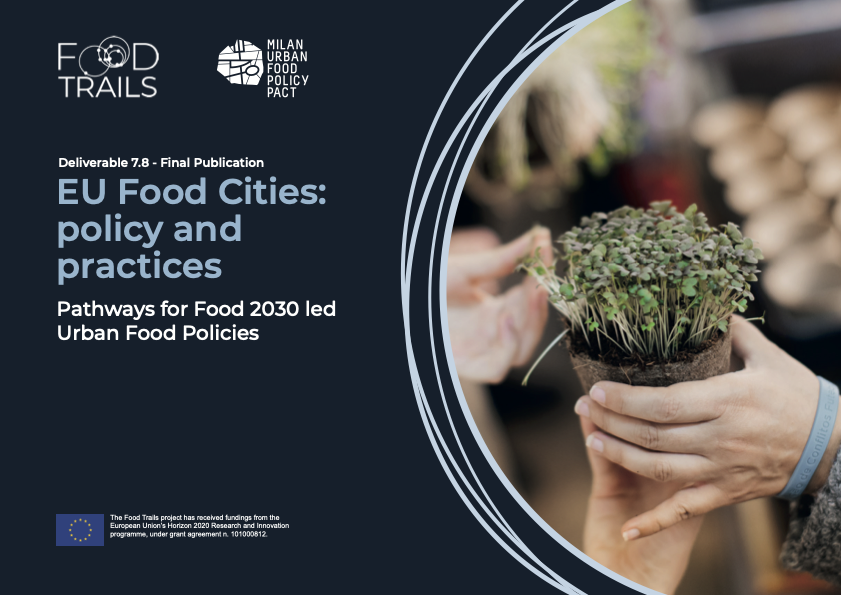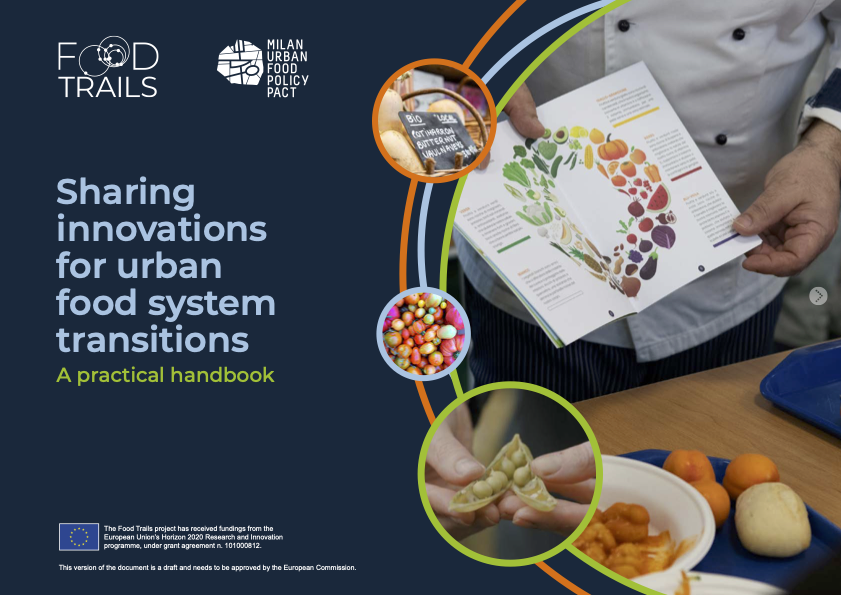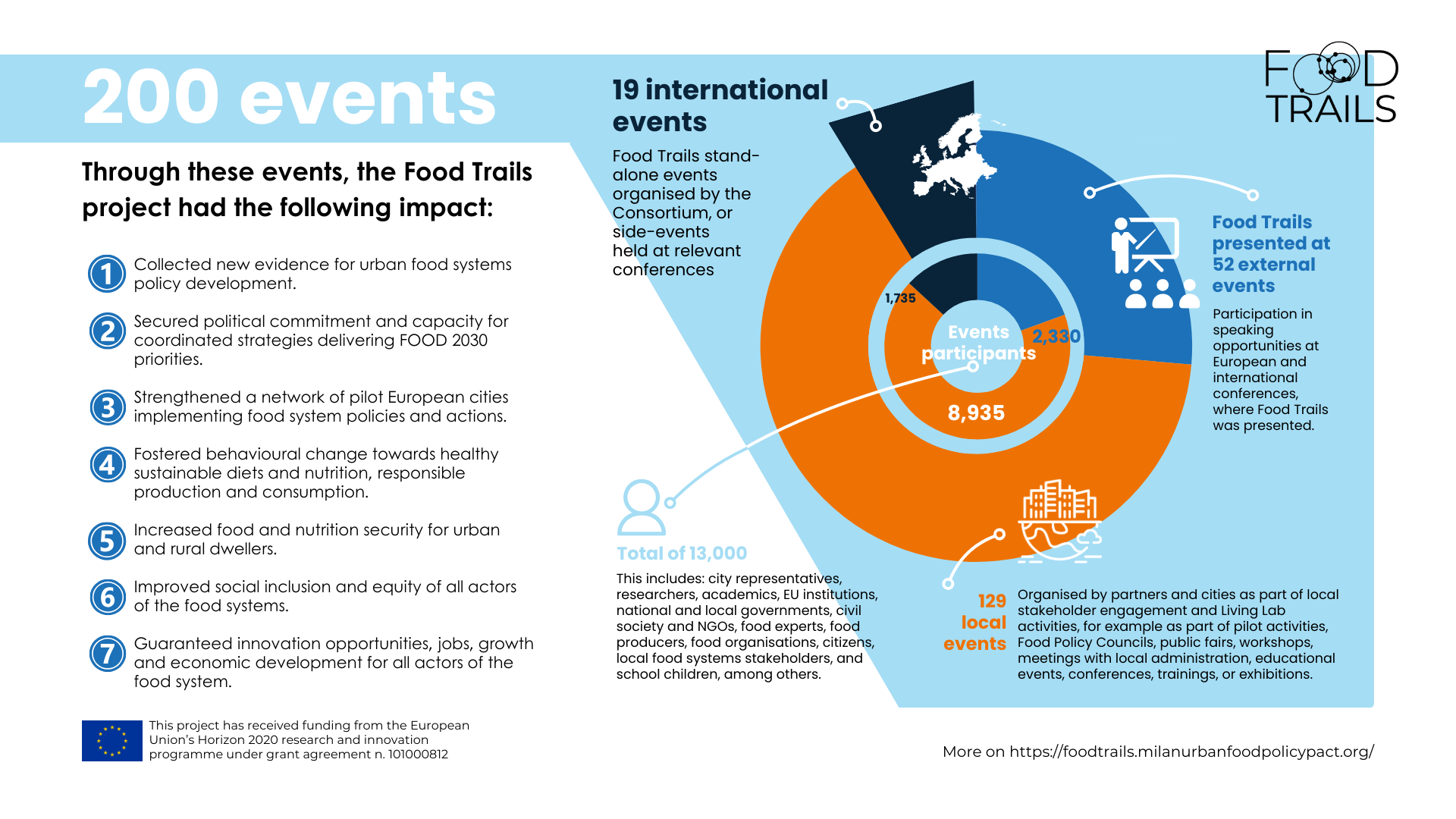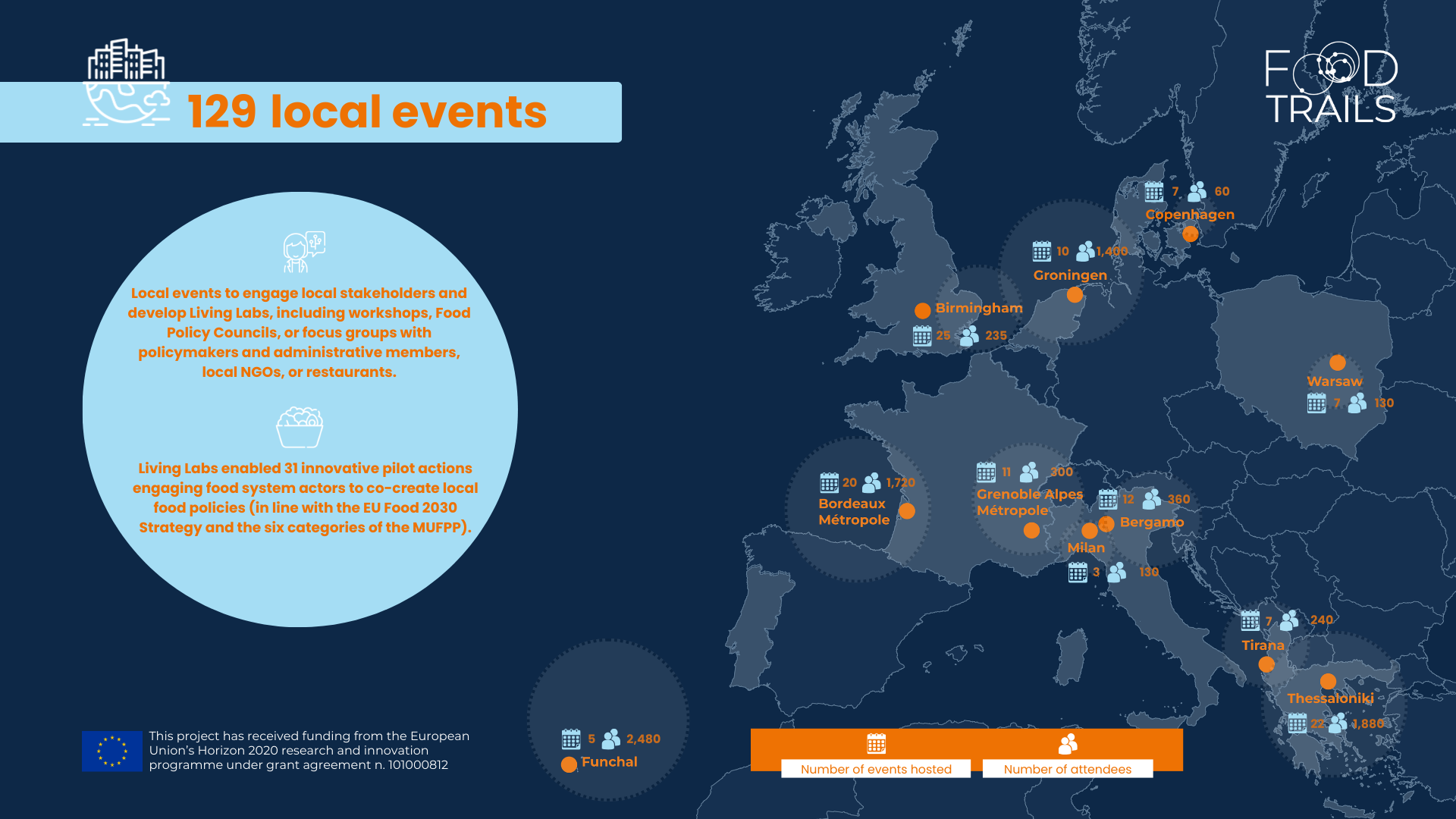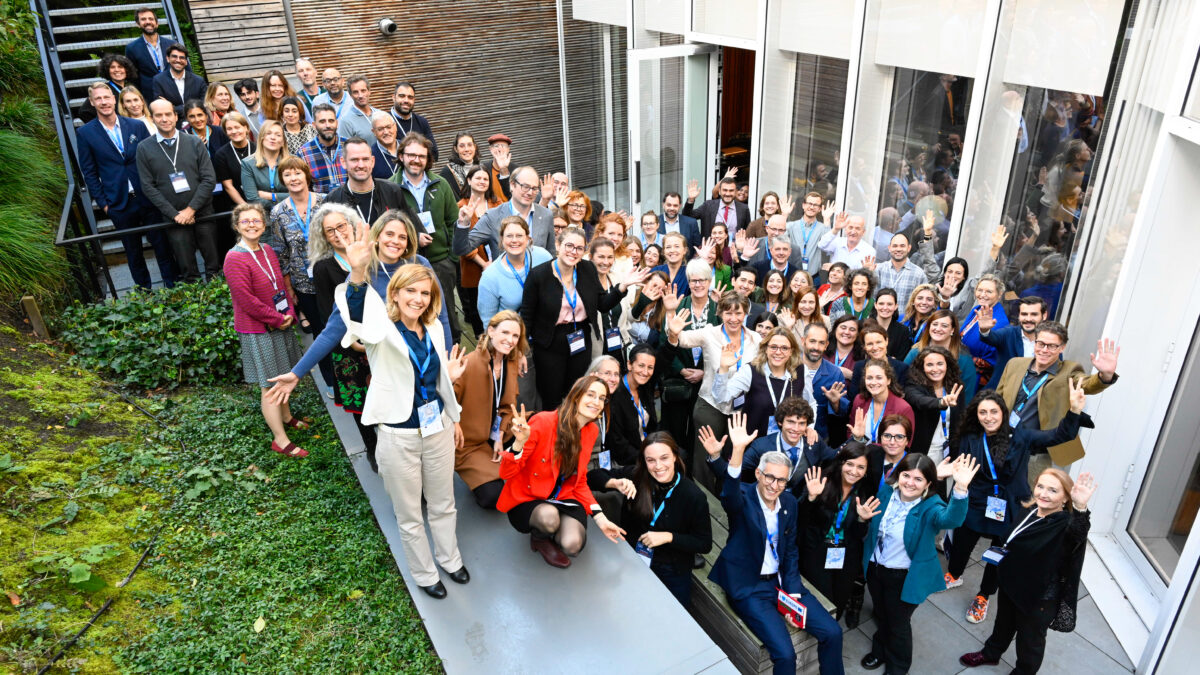
On World Food Day 2024, the Food Trails project reached its conclusion after four years of collaboration with European cities. The initiative made significant strides in rethinking food systems for healthy and sustainable urban environments. Below, we highlight key outcomes from the project.
Achievements at a glance:
- 11 cities and metropolitan authorities developed municipal acts, guidelines and goals for their food policies
- 31 pilot actions were implemented, positively influencing local food systems
- 8 tools were created to support cities in developing food system interventions and measuring their outcomes and impacts
Read on to find out more…
Urban food policies & cities pilot actions
Before Food Trails began, only three partner cities — Groningen (in 2012, and updated in 2024), Milan (2015), Copenhagen (2019) — had formal food policies in place.
Today, thanks to the project, eight more cities have joined the effort to transform their local food systems:
Thessaloniki, Bordeaux Metropole, and Grenoble-Alpes Metropole set up food councils to ensure stakeholders are involved in co-designing and implementing these food strategies. Birmingham’s new Food Strategy emerged from bottom-up efforts at the “Birmingham Food Revolution” movement, underscoring the importance of collaborating with local communities.
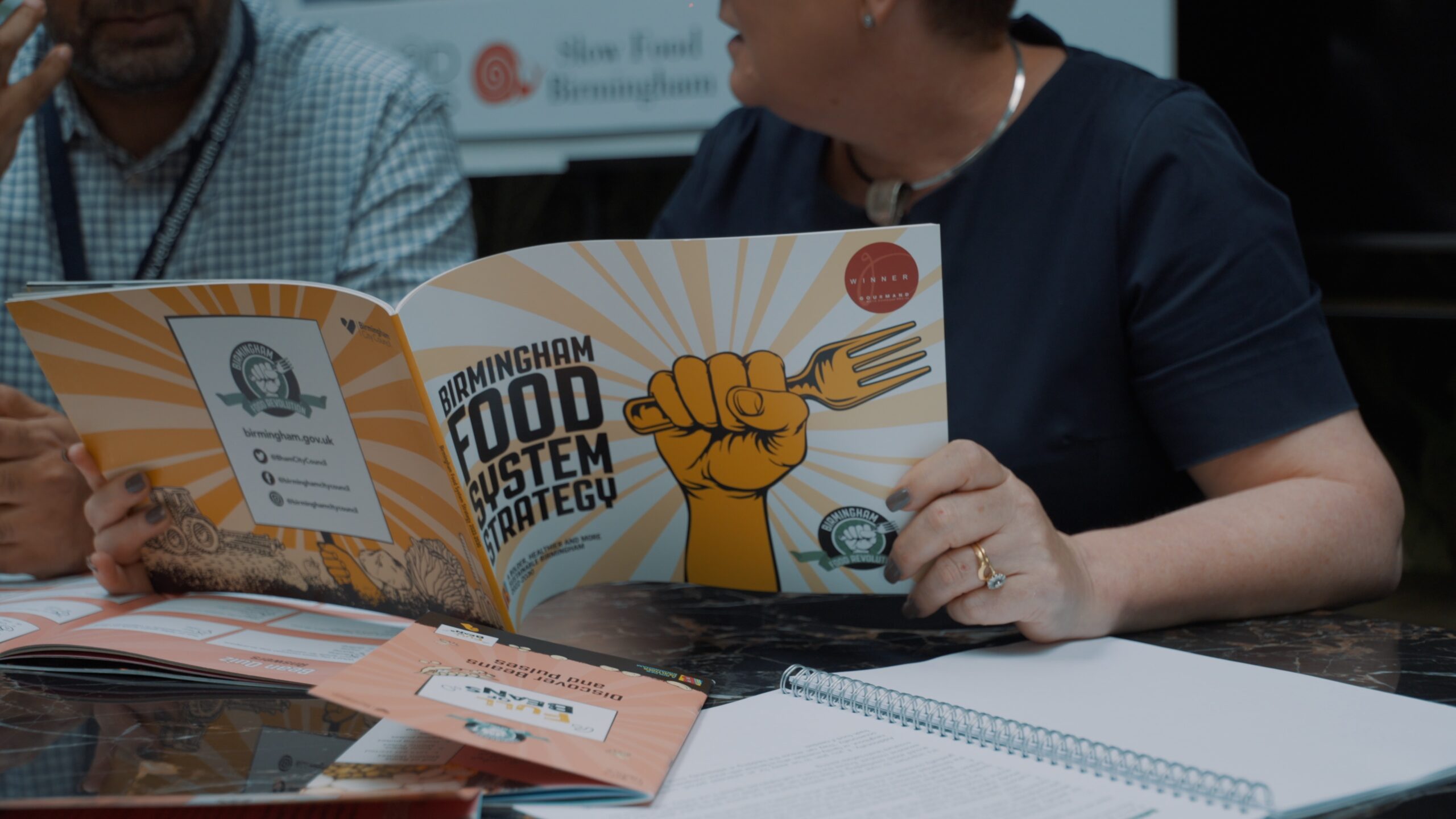
In other cities, action started from scratch. Bergamo, Funchal and Tirana have created and approved a food strategy as part of their involvement in the Food Trails project. Bergamo, for instance, developed a strategic food manifesto, informed by a food system assessment and the results of a pilot on sustainable school meals. Funchal prioritized education, especially for the younger generation. Tirana developed a strategy for a more environmentally friendly and equitable food system. Warsaw is expected to release its food strategy following the project’s conclusion.

A total of 31 pilot actions were tested and implemented through local Living Labs, which foster collaboration between municipalities and stakeholders. These actions offered a practical means of addressing food systems challenges by encouraging local actors to interact, engage, and test innovative ideas and solutions to transform their food systems.
Learn more about the pilot actions in the project’s Final Publication* below
Tools to support cities develop food system interventions and measure impacts
The Food Trails Handbook*, Sharing innovations for urban food systems transitions, offers a practical guide for cities to reform their urban food systems. It contains examples of best practices and includes tools for developing and implementing policies for systemic change. Available in 10 languages, the handbook includes 8 tools for intervention, and provides guidance for planning, developing and implementing transformative processes.
Download the Food Trails Handbook below*:
Stakeholder engagement
Through an impressive 200 online and in-person, local and international events, the project directly engaged more than 13,000 stakeholders through a wide array of formats, such as festivals, political conferences, workshops, and impact investor meetings. The diversity of external groups involved in the Food Trails project demonstrates the critical role all food system actors play in food system transformation interventions.
Policy briefs
Several policy briefs were published during the project, synthesizing project outcomes, and providing input to external projects and EU-level initiatives. Topics covered include:
Final conference
On 3 October, 2024, Food Trails held its Final Conference in Brussels. Participants included elected representatives, city officers, academics, NGOs, the European Parliament and the European Commission. Discussions focused on the future of European food systems and the critical role of cities in driving a just and sustainable transition.
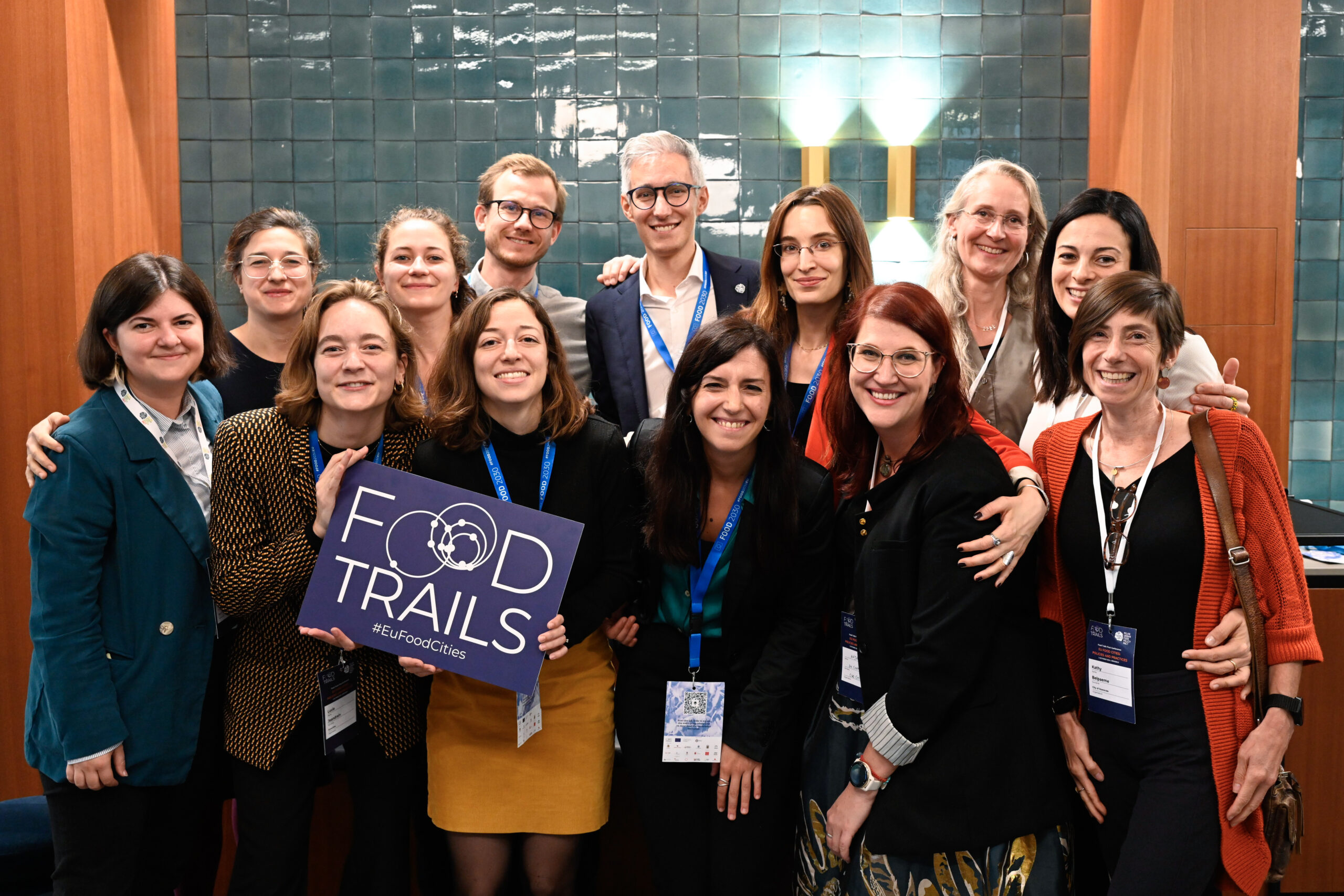
EAT’s role
EAT, a key project partner, has contributed by supporting cities in the development of their food policies, facilitating events and dissemination, and co-leading the project’s Investors Living Lab. EAT is proud to have been a part of the Food Trails consortium.
Explore Food Trails resources
- Food Trails Crosscutting Managers: The EU Food 2030 Strategy and how it was addressed in Food Trails through the role of four Crosscutting Mangers*
- Listen to the Food Trails podcast series. Episode 8, features EAT’s Joe Robertson on “Impact Investing in Urban Food Systems”
- Read the Food Trails reports and policy briefs.
- Read the latest news on the Food Trails project, and articles and accounts from the ground.
- Watch the Food Trails webinar series, which share experiences from the Food Trails project to foster the replication of solutions and best practices developed.
*These documents are draft deliverables and need to be approved by the European Commission.
About Food Trails
Food Trails is a four-year EU-funded Horizon 2020 project that started in October 2020, bringing together a consortium of 19 European partners, including 11 cities, 3 universities and 5 organizations. The project enabled cities to reimagine, develop and implement sustainable, healthy and inclusive food policies.
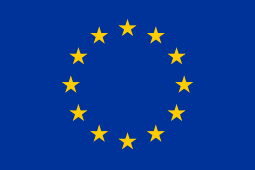 The Food Trails project received funding from the European Union’s Horizon 2020 Research and Innovation program, under grant agreement no. 101000812. https://foodtrails.milanurbanfoodpolicypact.org
The Food Trails project received funding from the European Union’s Horizon 2020 Research and Innovation program, under grant agreement no. 101000812. https://foodtrails.milanurbanfoodpolicypact.org
